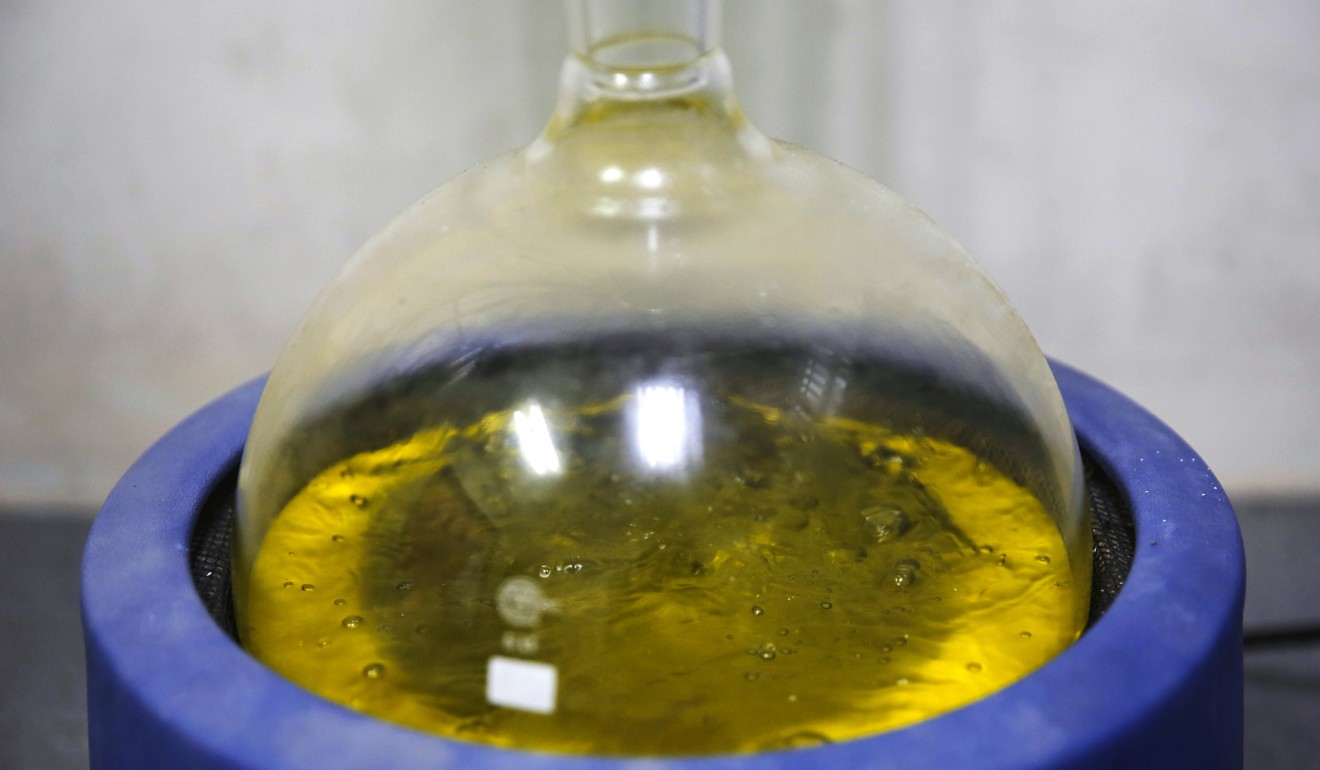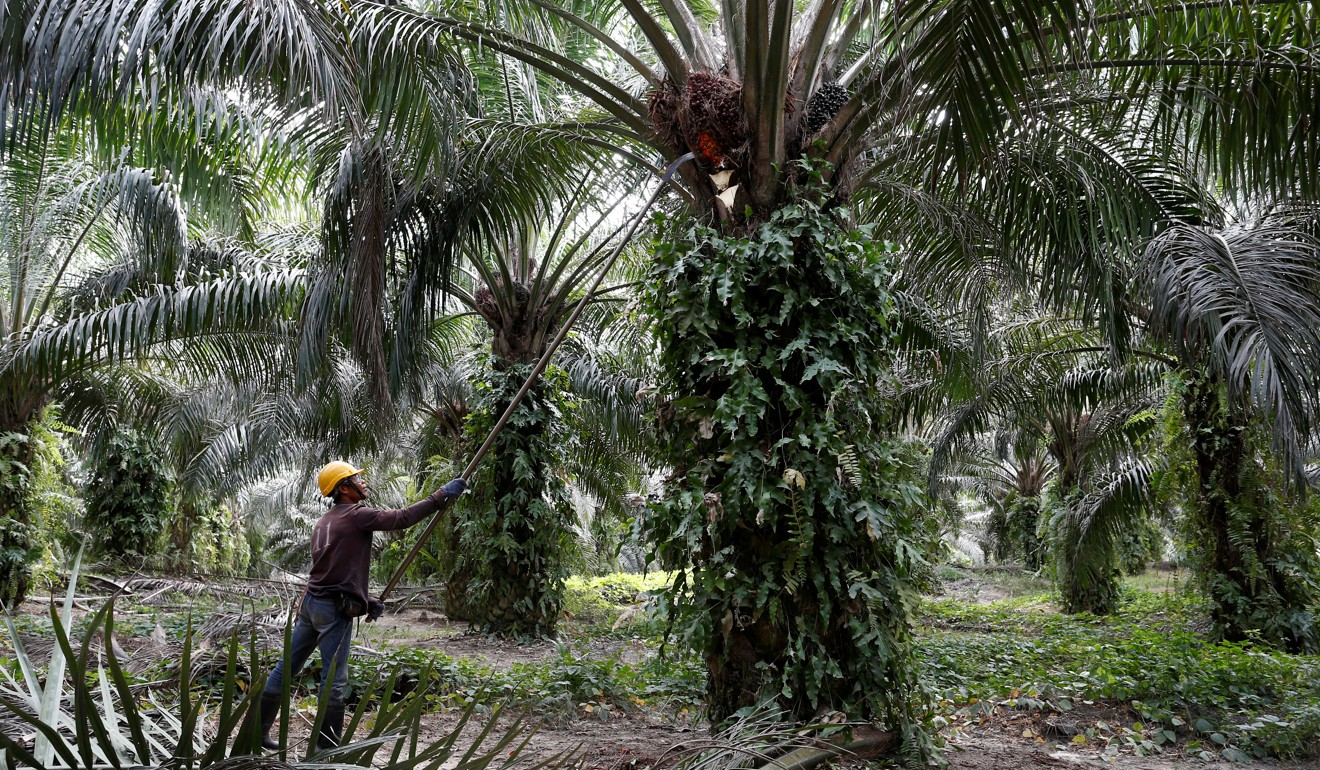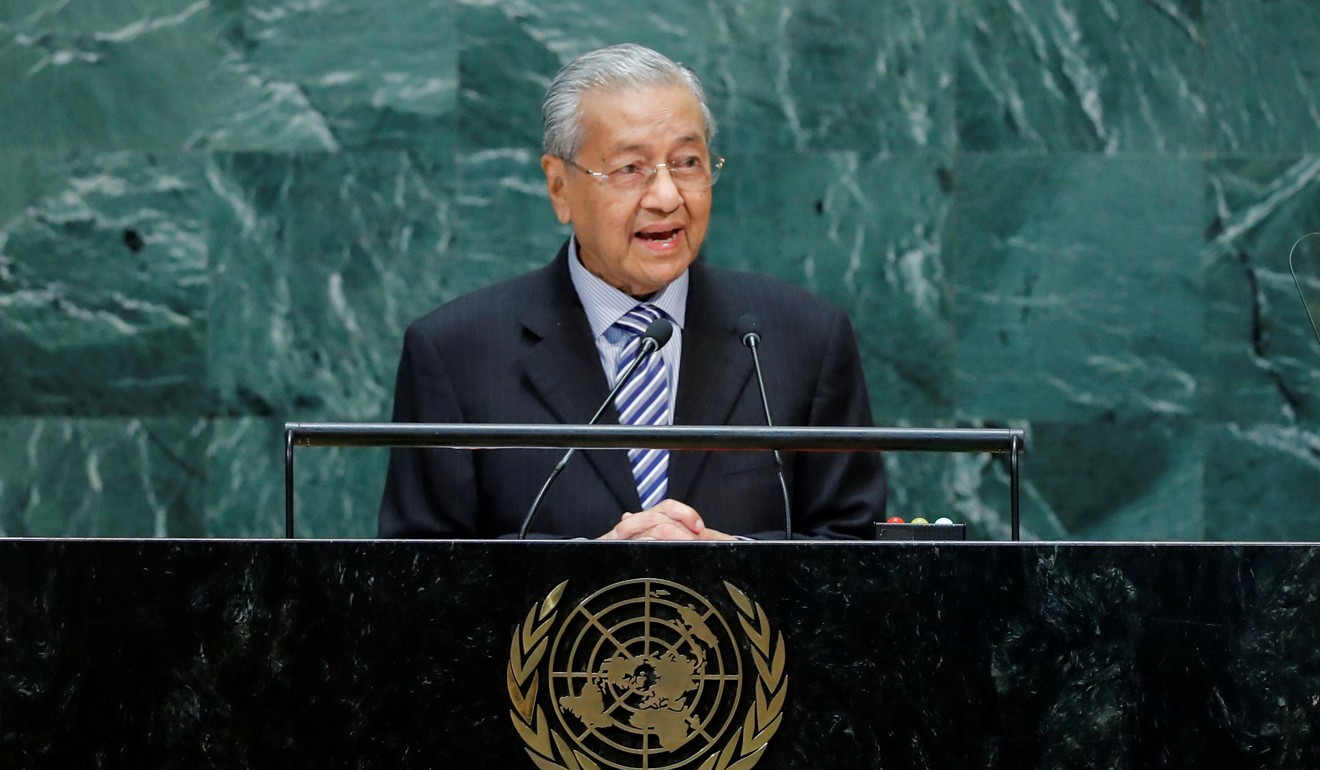Mahathir stands by Kashmir comments amid India palm oil boycott, says countries should abide by UN resolutions
- ‘We speak our minds and don’t retract or change,’ the Malaysian leader told reporters although he acknowledged the boycott could exacerbate what he described as a trade war between both sides
- Meanwhile, another Malaysian minister warned that new rules from the European Union could hurt demand for palm oil in food products, dealing a huge blow to the industry

Malaysian Prime Minister Mahathir Mohamad said on Tuesday he would not retract his criticism of New Delhi’s actions in disputed Kashmir despite Indian traders calling for an unprecedented boycott of Malaysian palm oil.
The impasse could exacerbate what Mahathir described as a trade war between the world’s second biggest producer and exporter of the commodity and its biggest buyer so far this year.
India’s top vegetable oil trade body on Monday asked its members to stop buying Malaysian palm oil after Mahathir said at the United Nations General Assembly last month that India had “invaded and occupied” Kashmir, a disputed Muslim-majority region also claimed by Pakistan.
Indian Prime Minister Narendra Modi’s government removed the long-standing autonomy of India’s portion of the Kashmir valley on August 5, calling it an internal matter and criticising countries that have spoken out against the move.
“We speak our minds, and we don’t retract or change,” Mahathir told reporters outside parliament. “What we are saying is we should all abide by resolutions of the [United Nations]. Otherwise, what is the use of the UN?”
The UN Security Council adopted several resolutions in 1948 and in the 1950s on the dispute between India and Pakistan over Kashmir, including one that said a plebiscite should be held to determine the future of the region.
The Solvent Extractors’ Association of India said in a statement on Monday that traders should in their “own interest as well as a mark of solidarity with our nation ... avoid purchases from Malaysia for the time being.”

Mahathir said Malaysia, the world’s second-biggest producer of palm oil behind Indonesia, would study the impact of the boycott and look at ways to address the issue. New Delhi has so far refused to comment on the trade spat.
“This is not the Indian government, so we have to find out how we can communicate with these people, because trade is a two-way thing and it is bad to have what amounts to a trade war,” Mahathir said.

Malaysia’s exports to India were worth $10.8 billion in the fiscal year that ended on March 31, while imports totalled $6.4 billion, according to Indian government data.
Malaysian palm oil futures slipped on Tuesday over concerns demand would fall from India.
India was Malaysia’s third-largest export destination in 2018 for palm oil and palm-based products worth 6.84 billion ringgit ($1.63 billion).
“It’s huge step and will have a negative impact on Malaysian palm producers,” said Gnanasekar Thiagarajan, head of trading and hedging strategies at Kaleesuwari Intercontinental.
“Though there is enough oil in the pipeline, some tightness in the palm oil market is expected due to the developments, which could benefit other vegetable oils.”
Malaysia said last week it was considering raising imports of raw sugar and buffalo meat from India, in a bid to ease the trade tensions.

India, the world’s biggest importer of edible oils, also buys palm oil from Indonesia as well as soyoil from Argentina and Brazil, and sunflower oil from Ukraine.
Separately, a Malaysian minister warned that new rules from the European Union could hurt demand for the commodity in food products in a big blow to the industry.
Palm oil is a versatile edible oil used in everything from lipstick to biofuels, but food accounts for nearly 70 per cent of global consumption of the oil, which is used for cooking and in items like snack foods, pizza and chocolate spread.
The EU is looking at new limits on food contaminants in refined fats and oils, including palm oil, said Teresa Kok, the Malaysian minister in charge of the palm oil portfolio.
The bloc has imposed a limit for glycidyl esters and will soon impose a limit for 3-MCPD esters “that may have an impact on palm oil consumption in food products”, Kok said on Tuesday, referring to the contaminants.
The European Food Safety Authority has said earlier that the two contaminants raise potential health concerns.
“Our industry must be ready to anticipate any challenges to these trade impediments and most importantly address the issues, especially on food safety,” Kok said.
The minister also reiterated that Indonesia and Malaysia – the top two producers of palm oil – would challenge at the World Trade Organisation another law from the bloc limiting palm oil usage in biofuels.
Earlier this year, the EU decided to phase out palm-based transport fuels in its share of renewable energy by 2030 after concluding that its cultivation results in excessive deforestation.